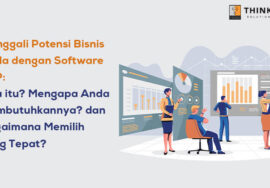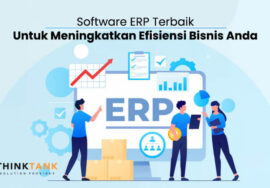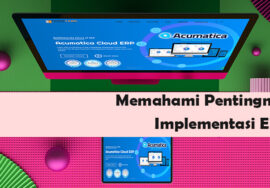Why is ERP and e-commerce integration a good idea?
As a business owner, you know that staying competitive and providing the best customer service possible is key to success. While it’s easy to focus on what’s happening in your day-to-day operations, it’s important to consider how integrating ERP and ecommerce can make a huge difference. By leveraging the power of ERP and ecommerce integration, businesses can reduce costs, increase operational efficiency, improve customer service, and gain valuable insights into their business operations. In this article, we will look at the benefits of integrating ERP and ecommerce, evaluating your needs for integration, choosing the right ERP solution for your business, implementing integration solutions, and unlocking the power of seamless ERP and ecommerce integration with Acumatica’s Retail-Commerce Management Solution. With this powerful solution you will be able to seamlessly integrate your storefront and back office so you can focus on creating customers for life. Let’s dive in!
The benefits of integrating ERP and e-commerce
Integrating ERP and ecommerce is quickly becoming a business necessity for companies looking to stay competitive in today’s fast-paced marketplace. By leveraging the power of integrated analytics, businesses can gain real-time visibility into their operations, improve customer service and order accuracy, reduce inventory costs, enhance operational efficiency by streamlining data flows, and increase profitability with integrated analytics.
For businesses that want to take advantage of the many benefits of integrating ERP and ecommerce solutions, the first step is to understand their specific needs and evaluate which ERP solution will best meet those needs. Once they have chosen the right solution for their business, they can then move forward with implementing integration solutions that will bring their storefront and back office together in one seamless platform. With this powerful integration in place, businesses can unlock the potential of using ERP and ecommerce solutions together to gain a true competitive edge.
The benefits of integrating ERP and ecommerce are manifold. For starters, improved customer service and order accuracy are two key advantages: customers can access accurate information faster than ever before while also being able to place orders more quickly and easily. As a result, customer satisfaction increases as does overall turnover due to less time spent waiting for orders to be processed or answered questions about inventory availability or pricing. In addition, reducing inventory costs helps businesses save money while improving stock management – meaning that customers do not have to wait long periods of time for products due to out-of-stock items or long lead times on restocks.
Integrating ERP and ecommerce also enhances operational efficiency by streamlining data flows between different departments within a business – from sales through finance all the way down to manufacturing – so that each department has access to real-time up-to-date information on current stock levels as well as customer orders. This streamlined approach makes it easier for employees across departments within a single organization collaborate more effectively which leads directly to increased productivity overall.
Finally, integrated analytics enables businesses to gain insights into their operations like never before; providing them with actionable intelligence about how well they are performing compared against goals or targets set out at the start of any project or initiative. This type of data can be extremely valuable when trying to optimize processes or identify areas where improvements could be made; helping businesses make decisions based on facts rather than assumptions alone which ultimately leads them towards increased profitability over time.
By understanding their specific needs evaluating the right solution for their business needs (such as Acumatica’s Retail Commerce Management Solution), implementing integration solutions,and unlocking the power of seamless ERP and ecommerce integration businesses can reap numerous rewards such as improved customer service order accuracy, reduced inventory costs, enhanced operational efficiency, increased profitability with integrated analytics,and greater visibility into their business operations. These are just some of reasons why integrating your store front an back office is an excellent idea for any business owner looking stay ahead in today’s competitive market place.
Evaluating your needs for ERP and e-commerce integration
Before embarking on any type of ERP and e-commerce integration, it is essential to assess which core areas require integration. This includes analyzing existing processes and data to determine what needs to be integrated, defining the goals of the integration, evaluating system compatibility with new solutions, and measuring cost versus benefit.
Understanding where manual processes currently exist can help identify potential areas for automation. Additionally, businesses should analyze how different applications interact and which pieces of data need to be shared between systems. Doing this allows for a better understanding of current setups and any gaps that can be filled through an integrative approach.
Defining end objectives helps ensure all stakeholders are aware of why they should integrate their systems in order to achieve successful outcomes. Questions such as customer service improvements, inventory management efficiency or time saved by automating tasks provide guidance on what benefits could result from integrating ERP and e-commerce technologies together.
It is also important to evaluate system compatibility with new solutions in order to avoid issues down the line due to incompatibility issues before making decisions about implementation. Lastly, businesses need to measure cost versus benefit so they know if their investment will generate savings or returns before investing in such an endeavor.
By taking these steps into consideration companies can make informed decisions about their ERP and e-commerce integration needs in order maximize potential benefits while creating efficiencies within their organization
Choosing the right ERP for your e-commerce business
Choosing an appropriate ERP solution for your e-commerce business is paramount to taking full advantage of the benefits associated with integrating ERP and eCommerce systems. Companies must assess their individual requirements, review ERP options based on features and capabilities, analyze scalability, determine compatibility with current hardware/software, and examine customer service/training possibilities.
The initial step when evaluating an ERP solution should be assessing whether it meets the needs of your business. Every eCommerce organization has unique operations which must be considered before making a selection. You should look for an ERP that enables you to manage orders, inventory levels and customer records in a timely and precise manner as well as offering additional features such as forecasting tools, analytics support, payment processing integration and shipping assistance.
It’s also crucial that any chosen system can scale up to accommodate future growth. A good system should help you expand your business by enabling increased order volumes or adding new services without negatively affecting performance levels.
Another important factor is ensuring the selected solution is compatible with existing hardware and software within your company such as those used for accounting or CRM purposes. Additionally, businesses need to make sure they can access data from anywhere in real time on any device type they require.
Ultimately, companies must consider what kind of training/customer service will be available once they settle on an ERP option for their e-commerce venture. Any provider should provide comprehensive support options that may include phone support, online helpdesk services or even one-on-one tutoring sessions so firms have all the necessary help when implementing their new system correctly.
By carefully evaluating potential solutions according to features/capabilities; scalability; compatibility with existing hardware/software; along with customer service/training options – businesses can make informed decisions about their ideal ERP solutions which helps them unlock true competitive advantages in their industry by taking full advantage of combining both ERPS and eCommerce systems together seamlessly!
Implementing ERP and e-commerce integration solutions
In order to ensure the successful integration of ERP and e-commerce systems, it is essential that companies take the necessary steps to form a comprehensive plan. This includes making use of APIs, data mapping, testing for errors and bugs, maintenance of the integration after launch, and analysis of data. When selecting an appropriate ERP solution for their needs, businesses should consider factors such as scalability, compatibility with current hardware/software, customer service/training opportunities available to them, and cost versus benefit.
The implementation process then begins with setting up processes to manage data within both systems; configuring APIs; connecting between applications; testing out functionality; teaching employees how to use the new system; creating a timeline for development; and launching the integrated system only after all tests have been completed without any issues. Doing so will enable businesses to gain valuable insights into their operations while also serving their customers better from a more streamlined system.
Unlocking the power of seamless ERP and e-commerce integration
As businesses seek to gain an edge in the competitive marketplace, integrating ERP and e-commerce systems can provide a powerful tool for success. By combining the two systems together, companies are able to unlock the potential of automated data sharing and real-time visibility into their operations which can lead to increased efficiency, higher customer satisfaction levels, better cost management capabilities and improved decision making power through access to detailed consumer insights.
These integrations also offer numerous advantages such as eliminating manual processes that can be tedious and prone to errors while also enabling businesses to better anticipate demand levels or create targeted marketing campaigns based on consumer buying behaviors. In addition, companies are able to customize their ordering processes according to customer preferences which leads towards enhanced user experiences resulting in increased loyalty from clients.
In conclusion, integrating ERP and e-commerce systems is an essential step for businesses looking for ways to strengthen their competitive advantage by optimizing efficiency and revenue potentials. By leveraging both these powerful tools together, companies have the ability to take full advantage of automated data sharing, comprehensive reporting capabilities and cost saving solutions all while reducing risks associated with manual entry errors.







